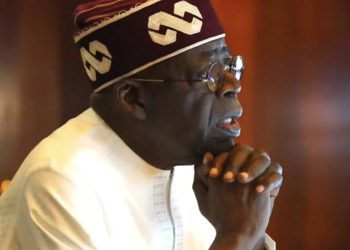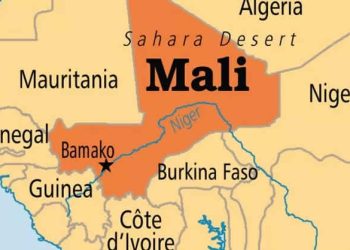A recent monthly business economic survey conducted by the Central Bank of Nigeria (CBN), in collaboration with the National Bureau of Statistics (NBS), says that most businesses in the country are grappling with serious threats. According to the survey conducted from October 6-10, with a response rate of 99.1 percent, insecurity and power supply challenges pose the biggest threats to business operations, at 71.8 and 70.9 points, respectively. Other threats to businesses are multiple taxes (70.2 points), high interest rates (68.4), financial constraints.
The survey also revealed that other notable concerns include excessive bank charges (64.7), unfavorable economic climate (63), arbitrary laws, poor infrastructure and political uncertainty at 57.5 points. All these risks impact directly on operational stability and profitability of businesses in the country. The business expectation survey gauges the sentiments of leading firms in Nigeria regarding the economy. It also tracks trends in business confidence, macroeconomic conditions and operational expectations. The result of the survey, according to the CBN, reflected “respondents” views, not the official position of the CBN.
The survey also serves as a guide for monitoring business performance, as well as potential policy interventions. However, economic experts have disagreed with the conclusion of the survey that the financial pressures being faced by business operators outweigh the political risks. On the contrary, political threats seem to pose bigger challenges even though both financial and political risks are impacting heavily on operational growth.
All are sensitive to rising inputs costs and credit conditions. Recently, the Manufacturers Association of Nigeria (MAN) lamented that big and Small and Medium Enterprises (SMEs) were “in life support.” The report reflected the situation in the country in spite of reported improvement in the Purchasing Managers Index (PMI). The Director General of MAN, Segun Ajayi-Kadiri, says that businesses in the country currently face a bleak and uncertain future, largely due to insecurity and unstable electricity supply.
The challenges raised by MAN include policy inconsistencies, exorbitant cost of production. Other complaints listed by MAN are multiple taxation, high cost of alternative energy, high exchange rate and interest rate, foreign exchange scarcity, over-regulation, low access to credit by Small and Medium size Enterprises (SMEs) and poor road infrastructure.
These constraints validate last month’s CBN business survey. While SMEs provide over 86 per cent of the Nigerian workforce and form a key part of the private sector, the manufacturing sector contributes about 16 per cent of Nigeria’s total annual Gross Domestic Product (GDP) and over 80 per cent employment opportunities in the country.
However, this is considered very low compared to other economies around the world. According to the CBN, as a result of the challenges confronting businesses, especially SMEs, industrial activity in the sector contracted for nine consecutive months in 2024, with the PMI dropping to 49.7 per cent. This is below the growth threshold. The manufacturing investment also dropped by 1.2 per cent in Q4 2024 from 3.5 per cent contraction recorded in Q3 2024. Statistics from MAN indicate that the sector is currently producing far below capacity as the operators struggle economic headwinds, as the capacity utilisation plummeted to 57 per cent in 2024 from 73.3 per cent three decades ago.
Consequently, the contribution of the sector has shrunk to 8.6 per cent last year from 30 per cent recorded over the same period. Real growth has also declined from 14.7 per cent in 2014 to 1.38 in 2024. The non-oil sector contribution has also declined to 25.13 per cent last year from 82.37 per cent recorded in 2019. Nigeria is ranked 97th in the recent Global Competitive Industrial Performance Index, 44 places below South Africa. Data from the World Trade Organisation(WTO) show that Nigeria is far behind South Africa in export manufactured goods, valued at $46billion in 2022, compared to Nigeria’s $3billion within the same period. This is about 15 times bigger than Nigeria’s export value.
According to the National Bureau of Statistics (NBS), the decline in global demand for Nigerian products is attributed to the neglect of the manufacturing sector that has shown a 166 per cent decline of Nigeria’s exports from a record N2.07billion in 2019 to N778.4billion in 2023. According to Nigeria Economic Summit Group’s(NESG) Q3 2024 Foreign Trade Alert, Nigeria’s import bill rose to N14.7 trillion in the third Quarter 2024 from N9trillion in the same period in 2023, representing 63 per cent. The cost of imported raw materials surged by 118 per cent, while spending on alternative energy reached all-time high of N1.1trillion in 2024. This represents the worst period experienced by business operators in the country in decades.
In all, there is urgent need to tackle the threat of insecurity across the country. All threats to businesses in the country must also be addressed. We need a comprehensive policy framework that will guide industrial development and economic growth. Above all, let the government provide the enablers that will make businesses thrive in the country.













































